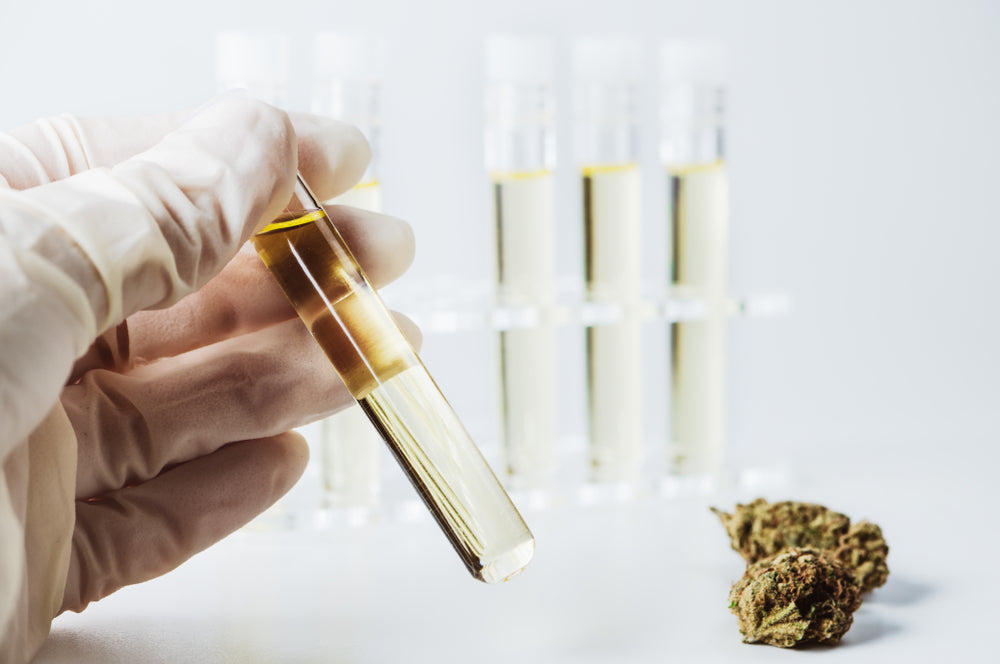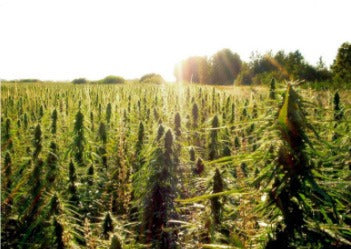Is Delta-9 THC Better than Delta-8 THC?

The popularity of Delta-8 THC products is on the rise. But instead of being driven by emerging research of potential benefits, its popularity is driven by the exploitation of a legal loophole.
To understand why that is, we'll need to differentiate what exactly Delta-8 (and Delta-9 THC) is and how it works.
Delta-9 THC vs. Delta-8 THC
Delta-8 THC is an isomer of Delta-9 THC. Delta-8 THC is only slightly chemically different from Delta-9 THC, so it produces similar euphoric effects. While both can be naturally derived from hemp, Delta-8 occurs in small, often undetectable amounts.
According to the Farm Bill, products made from plants that meet the legal standards of hemp (i.e., cannot contain more than 0.3% THC) are legal across most of the USA, except in three states.
But guess what? This THC limit refers strictly to Delta-9 THC content, not Delta-8.
That means products containing higher amounts of Delta-8 THC (think: 1%, 5%, 10%) are legal, so long as they come from hemp that doesn't have more than 0.3% Delta-9 THC based on the dry weight.
The only catch? Delta-8 THC doesn’t naturally occur in large amounts in hemp plants. And to get around this issue, producers have resorted to several creative—and maybe even harmful—production methods that synthetically convert cannabidiol (CBD) into Delta-8 THC.
Delta-8 THC Could Be Unsafe
First, Delta-8 has not been consumed in large quantities until very recently. This increases the potential for not-yet-documented side effects associated with long or even short-term use.
Additionally, manufacturers may use potentially unsafe chemicals (e.g., toluene, heptane, or even metal) to make Delta-8 THC through the chemical synthesis process called isomerization.
The result is a "soup" of Delta-8 THC mixed with unknown by-products and unwanted compounds. While some manufacturers will separate Delta-8 THC from certain unwanted reaction leftovers or by-products, it's difficult to know which products are actually safe, as labs don't always test for the potentially dangerous compounds produced by isomerization.
How Is Delta-9 THC Better than Delta-8 THC?
Okay, so we’ve established that Delta-8 THC can be unsafe. But that doesn't prove that Delta-9 THC is “better."
Well, for starters: Delta-9 THC has been consumed for thousands of years. The odds of discovering some previously unreported side effects are slim. It’s also natural and doesn’t require the use of harmful chemicals to produce. And most importantly, it’s effective—as proven by the well-documented “entourage effect”, where taking CBD and Delta-9 THC together produces greater benefits than taking either of them alone.
So if you have the option between Delta-8 and Delta-9 THC, Delta-9 is definitely the safer bet. Additionally, when it’s hemp-derived and under 0.3% of the weight of the total product, that makes it compliant with the Farm Bill.
Interested in giving CBD + Delta-9 THC products like gummy bites a try? We recently launched a sub-brand named Budder, with a product line that includes Delta 9 gummies with 25mg of CBD and the option of either 2.5mg or 5mg of Delta-9 THC. You can find them here.
If you're interested in learning more about how to spot high-quality Delta-9 THC products, check out our recent blog post here.

Newsletter signup
Join the Joy Organics Family
Sign up and get updates on new products, as well as special coupons and discounts.
testimonials
What Our Clients Say
“This is a company that truly cares about its customers and providing the best CBD products currently available on the market.”









Join In On The Conversation
Your email address will not be published. Required fields are marked *
Comments will be approved before showing up.